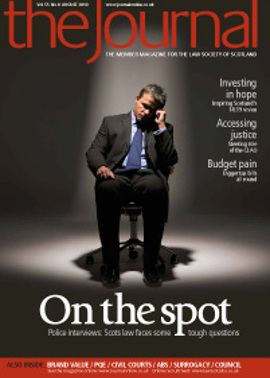Net yourself a baby

Cristiano Ronaldo has been hitting the headlines recently, not because of his lack of fancy footwork at the World Cup, but for his off-pitch performance last year in Los Angeles which has resulted in the Portuguese and Real Madrid footballer becoming a father for the first time.
Ever since 3 July, when Ronaldo announced his son’s birth on his Facebook and Twitter pages by saying: “As agreed with the baby’s mother, who prefers to have her identity kept confidential, my son will be under my exclusive guardianship”, there has been speculation about how the child was conceived.
The Portuguese press alleged that the child was the result of a commercial surrogacy agreement. The UK press quickly followed suit; after all, the USA is often the place of choice for surrogacy arrangements. Although it now appears that the child is more likely the result of a one-night stand, the surrogacy rumours raised some interesting legal issues.
American dreams
In some states in the USA, commercial surrogacy is not only allowed, it is seen as a profitable business: surrogacy centres or “baby brokers” quote prices of up to $150,000 to completely manage the surrogacy process. Along with their fee, this includes paying the embryologist, legal fees and medical expenses. California, in particular, contains half of all the registered surrogacy agencies in the US.
After signing up to a commercial surrogacy agreement, almost every aspect of the surrogate’s lifestyle is monitored – down to what they eat and drink and how they exercise. Compliance with the rules is a necessary evil, as the bulk of the surrogate’s fee is paid after the transfer of parental rights – no product, no payment!
What the agreements contain depends on the commissioning couple’s wishes and how much control they want to exert over the surrogate. Some agreements even contain a controversial clause that the surrogate must agree to abort the foetus on demand if the couple decide to terminate the surrogate’s service.
UK uncertainties
In the UK, the laws surrounding surrogacy are very different. One notable difference is that here, under s 27 of the Human Fertilisation and Embryology Act 1990, the surrogate is deemed to be the child’s mother, being the woman who carried the foetus, regardless of whether she is biologically related to the child. She therefore has full parental rights and can choose to keep the baby once born, irrespective of any “surrogacy agreement” she has entered into or “expenses” she has been paid.
Furthermore, if the surrogate is married, under the Act her husband will be treated in law as the father, unless it can be shown that he did not consent to the surrogacy. It is worth noting that while it is not illegal to enter into a surrogacy agreement in the UK, any such agreement is unenforceable in court.
A UK surrogate cannot be paid, but she can receive “reasonable expenses”. Couples entering into deals with an overseas surrogate can pay the surrogate what is allowed in the UK. But what a couple who are desperate for a child and have exhausted all other options deem to be reasonable is likely to be entirely different to what a court deems a reasonable figure to be. Lots of couples are therefore embarking on international surrogacy and paying whatever is requested in order to secure themselves a child.
This could cause them serious problems if the UK courts fail to grant them parental rights and responsibilities, deeming the figures paid to be more than “reasonable expenses”.
In Re X & Y (Foreign Surrogacy) (2009), twins who were biologically the children of a British father and an anonymous egg donor were born to a Ukrainian surrogate mother. The surrogate was believed to have been paid more than £30,000. This was thought to be too high, and there was doubt as to whether the commissioning couple would be granted parental rights and responsibilities. The twins were not only stateless and parentless, but had no right of entry into the UK.
In a decision that was said to be “groundbreaking”, the High Court granted parental rights and responsibilities, holding that a balance should be struck between public policy and children’s welfare. The welfare of the children would be best served by making the order sought. Nonetheless, it is thought that this case may be the exception that proves the rule.
Third party question
As more and more people in the UK choose to have children later on in life and have to consider assisted reproduction, it is worth bearing in mind that surrogacy carries more controversy, and arguably more risk, than other methods due to the involvement of a third party.
So, should your surrogate be paid more than reasonable expenses or should she change her mind, your dreams of parenthood might be dashed faster than Portugal’s dreams of winning the World Cup.
- Naomi Pryde is a solicitor at Tods Murray LLP
In this issue
- From Cadder to Calman via Constitution
- We can make the bill work
- The Cadder effect
- Bio Quarter: a case study
- Budgets of many colours
- Been there, done that
- Gill and the consumer
- Smoothing the path
- Net yourself a baby
- What's in a name?
- Inspiring change
- Further work in hand on constitution
- Faculty support on the agenda
- PCC's first year of "unsatisfactory" complaints
- From the Brussels office
- Learning in context
- Paper, pixel and process
- Growing cloud
- Ask Ash
- PQE: Post Qualification Equality?
- Technology to the rescue?
- "Definitive" approach
- Threat, or opportunity?
- Equality for all?
- Time to take a stand?
- A burden discharged
- The promise of certainty?
- A future for crofting
- Final tally
- Website review
- Book reviews
- An easy way to give?
- Three cheers for iPad






